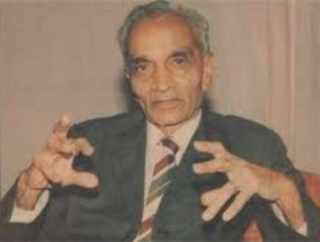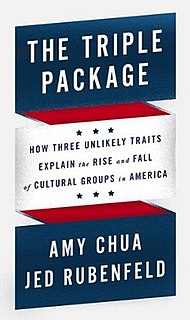 W
WEthnocentrism in social science and anthropology—as well as in colloquial English discourse—means to apply one's own culture or ethnicity as a frame of reference to judge other cultures, practices, behaviors, beliefs, and people, instead of using the standards of the particular culture involved. Since this judgment is often negative, some people also use the term to refer to the belief that one's culture is superior to, or more correct or normal than, all others—especially regarding the distinctions that define each ethnicity's cultural identity, such as language, behavior, customs, and religion. In common usage, it can also simply mean any culturally biased judgment. For example, ethnocentrism can be seen in the common portrayals of the Global South and the Global North.
 W
WAfrocentrism is an approach to the study of world history that focuses on the history of people of recent African descent. It is in some respects a response to global (Eurocentric) attitudes about African people and their historical contributions; it seeks to counter what it sees as mistakes and ideas perpetuated by the racist philosophical underpinnings of western academic disciplines as they developed during and since Europe's Early Renaissance as justifying rationales for the enslavement of other peoples, in order to enable more accurate accounts of not only African but all people's contributions to world history. Afrocentricity deals primarily with self-determination and African agency and is a Pan-African point of view for the study of culture, philosophy, and history.
 W
WAmerican exceptionalism is the idea that the United States is inherently different from other nations. Its proponents argue that the values, political system, and historical development of the U.S. are unique in human history, often with the implication that the country "is both destined and entitled to play a distinct and positive role on the world stage."
 W
WAmericentrism, also known as American-centrism or US-centrism, is a tendency to assume the culture of the United States is more important than those of other countries or to judge foreign cultures based on American cultural standards. It refers to the practice of viewing the world from an overly US-focused perspective, with an implied belief, either consciously or subconsciously, in the preeminence of American culture.
 W
WThe Canadian Nationalist Party is a far-right and white nationalist political party in Canada.
 W
WThe Crest of the Peacock: Non-European Roots of Mathematics is a book authored by George Gheverghese Joseph and published by Princeton University Press, the third edition of which was released in 2011. The book was brought out as a response to view of the history of mathematics epitomized by Morris Kline's statement that, comparing to what the Greeks achieved, "the mathematics of Egyptians and Babylonians is the scrawling of children just learning to write, as opposed to great literature", criticised by Joseph as "Eurocentric".
 W
WThe Culture of Critique series is a trilogy of books by Kevin B. MacDonald, an antisemitic conspiracy theorist, white supremacist and a retired professor of evolutionary psychology. MacDonald claims that evolutionary psychology provides the motivations behind Jewish group behavior and culture. Through the series, MacDonald asserts that Jews as a group have biologically evolved to be highly ethnocentric and hostile to the interests of white people. He asserts Jewish behavior and culture are central causes of antisemitism, and promotes conspiracy theories about alleged Jewish control and influence in government policy and political movements.
 W
WKorean ethnic nationalism, or racial nationalism, is a political ideology and a form of ethnic identity that is widely prevalent in modern North and South Korea. It is based on the belief that Koreans form a nation, a race, and an ethnic group that shares a unified bloodline and a distinct culture. It is centered on the notion of the minjok, a term that had been coined in Imperial Japan ("minzoku") in the early Meiji period. Minjok has been translated as "nation", "people", "ethnic group", "race", and "race-nation".
 W
WThe Ethnocacerist movement is a Peruvian ethnic nationalist movement seeking the establishment of a proletarian dictatorship led by the country's Indigenous communities and their descendants. It draws on the history of Indigenous and anticolonial movements, including those of Juan Velasco Alvarado, Evo Morales, Abdel Nasser, Muammar Gaddafi and Che Guevara. It is considered an Indigenist ideology.
 W
WHistoriography in North Macedonia is the methodology of historical studies used by the historians of that country. It has been developed since 1945 when SR Macedonia became part of Yugoslavia. According to the German historian Stefan Troebst it has preserved nearly the same agenda as the Marxist historiography from the times of the Socialist Federal Republic of Yugoslavia. The generation of Macedonian historians closely associated with the Yugoslav period who worked on the actual national myths of that time are still in charge of the institutions. In fact, in the field of historiography, Yugoslav communism and Macedonian nationalism are closely related. According to the Austrian historian Ulf Brunnbauer, modern Macedonian historiography is highly politicized, because the Macedonian nation-building process is still in development. Diverging approaches are discouraged and people who express alternative views risk economic limitations, failure of academic career and stigmatization as "national traitors". Troebst wrote already in 1983 that historical research in the SR Macedonia was not a humanist, civilizing end in itself, but was about direct political action. No such case of reciprocal dependence of historiography and politics has been observed in modern Europe. Although ethnic Macedonians do not appear in primary sources before 1870, medieval history is extremely important for the traditions of modern Macedonian nationalism. Macedonian historians fabricated after 1960 the myth that Samuel of Bulgaria was Macedonian by nationality. Moreover, after 2010 a nation-building project was promoted to impose the deceptive idea that the Macedonian nation was the oldest on the Balkans, with an unbroken continuity from Antiquity to Modern times. Some domestic and foreign scholars have criticized this agenda of a denialist historiography, whose goal is to affirm the continuous existence of a separate Macedonian nation throughout history. This controversial worldview is ahistorical, as it projects modern ethnic distinctions into the past. Such an enhanced, ethnocentric reading of history contributes to the distortion of the Macedonian national identity and degrades history as an academic discipline. Under such historiographies generations of students were educated in pseudo-history.
 W
WKetuanan Melayu is a political concept emphasising Malay preeminence in present-day Malaysia. The Malays of Malaysia claimed a special position and special rights owing to their long domicile and the fact that the present Malaysian state itself evolved from a Malay polity. The oldest political institution in Malaysia is the system of Malay rulers of the nine Malay states. The British colonial authorities transformed the system and turned it first into a system of indirect rule, then in 1948, using this culturally based institution, they incorporated the Malay monarchy into the blueprints for the independent Federation of Malaya.
 W
WKevin B. MacDonald is an American psychologist and a retired professor of evolutionary psychology at California State University, Long Beach (CSULB). The Anti-Defamation League and the Southern Poverty Law Center describe him as being an anti-semitic conspiracy theorist and white supremacist. In 2008, the CSULB academic senate voted to disassociate itself from MacDonald's work.
 W
WPurushottam Nagesh Oak was a historical revisionist from India.
 W
WThe English Wikipedia has been criticized for having a systemic racial bias in its coverage. This stems in part from an under-representation of people of color within its editor base. In "Can History Be Open Source? Wikipedia and the Future of the Past," it is noted that article completeness and coverage is dependent on the interests of Wikipedians, not necessarily on the subject matter itself. The past president of Wikimedia D.C., James Hare, noted that "a lot of black history is left out" of Wikipedia, due to articles predominately being written by white editors. Articles that do exist on African topics are, according to some, largely edited by editors from Europe and North America and thus reflect only their knowledge and consumption of media, which "tend to perpetuate a negative image" of Africa. Maira Liriano of the Schomburg Center for Research in Black Culture, has argued that the lack of information regarding black history on Wikipedia "makes it seem like it's not important."
 W
WV. T. Rajshekar, in full Vontibettu Thimmappa Rajshekar Shetty, is an Indian journalist who is the founder and editor of the Dalit Voice, which has been described by Human Rights Watch as "India’s most widely circulated Dalit journal".
 W
WThe Triple Package: How Three Unlikely Traits Explain the Rise and Fall of Cultural Groups in America is a book published in 2014 by two professors at Yale Law School, Amy Chua and her husband, Jed Rubenfeld. Amy Chua is also the author of the 2011 international bestseller, Battle Hymn of the Tiger Mother.